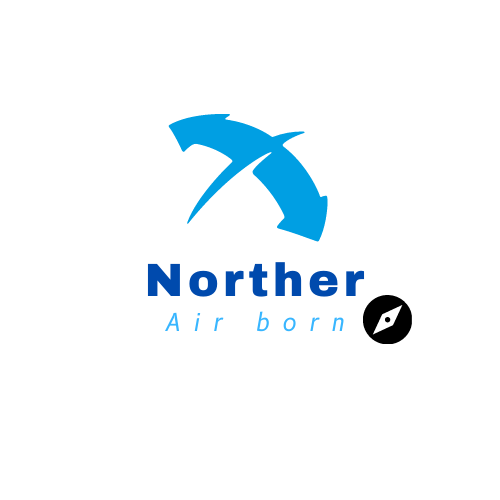Modern enterprises recognise that excellence in pest management extends far beyond simply addressing infestations when they occur. The commitment to comprehensive pest controller training represents a fundamental shift in how businesses approach operational resilience, customer satisfaction, and competitive positioning. By investing in sophisticated training programmes that incorporate cutting-edge technology and proven methodologies, organisations not only protect their physical assets but also cultivate a reputation for professionalism that resonates throughout their market sector. This strategic approach transforms what many perceive as a reactive necessity into a proactive business advantage that delivers measurable returns across multiple dimensions of commercial performance.
The Strategic Value of Professional Pest Control Training for Modern Businesses
Investing in professional pest control training delivers tangible strategic benefits that extend well beyond immediate problem resolution. When staff members receive thorough education in modern pest management principles, they develop the ability to identify potential vulnerabilities before they escalate into costly emergencies. This proactive stance fundamentally alters the relationship between businesses and pest management, shifting from crisis response to preventative stewardship. Organisations that prioritise this training demonstrate to clients and stakeholders alike that they maintain rigorous operational standards, which in turn strengthens brand credibility and market positioning. The ripple effects of this investment manifest in reduced downtime, enhanced workplace safety, and the confidence that comes from knowing potential threats are being monitored by knowledgeable personnel.
How Qualified Staff Transform Pest Management into a Competitive Advantage
Qualified staff equipped with comprehensive pest management knowledge become invaluable assets who can distinguish your organisation from competitors operating with less sophisticated approaches. These trained professionals understand the nuances of pest behaviour, environmental conditions that facilitate infestations, and the most effective intervention strategies for specific scenarios. Their expertise enables them to communicate effectively with clients, explaining complex procedures in accessible terms whilst demonstrating genuine competence. This capability builds trust and reassures customers that they have partnered with an organisation that takes professional standards seriously. Furthermore, staff who receive ongoing training stay abreast of evolving regulations and industry best practices, ensuring compliance whilst implementing innovative solutions that deliver superior outcomes. The competitive advantage lies not merely in solving problems but in preventing them through informed vigilance and strategic planning.
Understanding the Direct Link Between Training Investment and Operational Excellence
The correlation between training investment and operational excellence becomes evident when examining key performance indicators across organisations with different training commitments. Businesses that allocate resources to comprehensive pest control education consistently report fewer emergency callouts, reduced treatment costs, and higher customer retention rates. This relationship exists because well-trained personnel possess the diagnostic skills to identify early warning signs that less experienced staff might overlook. They understand how to deploy resources efficiently, targeting interventions precisely rather than applying broad-spectrum solutions that consume time and materials unnecessarily. Moreover, trained staff make data-driven decisions informed by their understanding of pest biology, environmental factors, and treatment efficacy, which collectively contribute to superior operational outcomes. The investment in training therefore functions as a force multiplier, enhancing the effectiveness of every subsequent intervention whilst building institutional knowledge that compounds over time.
Technology-driven pest control methods: training your team for maximum efficiency
Contemporary pest management has evolved dramatically through the integration of technology that enables real-time monitoring, predictive modelling, and precision targeting. Training programmes now incorporate modules on IoT sensors, artificial intelligence applications, and data analytics platforms that transform raw information into actionable intelligence. When teams understand how to leverage these digital tools effectively, they gain capabilities that were simply unavailable to previous generations of pest control professionals. Smart sensors continuously monitor environmental conditions such as temperature and humidity whilst detecting pest presence, transmitting alerts to mobile applications that enable rapid response. This technological ecosystem supports integrated pest management strategies that emphasise sustainability and resource optimisation, aligning with growing consumer demand for eco-friendly solutions. Training staff to navigate these sophisticated systems ensures that technology serves as an enabler rather than an impediment, maximising the return on both training and technology investments.
Leveraging digital tools and smart detection systems through proper education
Proper education in digital tools and smart detection systems empowers pest control professionals to harness the full potential of modern technology. IoT sensors deployed throughout facilities provide continuous monitoring that identifies anomalies requiring attention, whilst data analytics platforms process this information to reveal patterns that predict future pest activity. Staff trained in these systems can interpret automated alerts accurately, distinguishing genuine threats from false positives whilst prioritising responses based on risk assessment. Mobile applications facilitate seamless communication between technicians and clients, enhancing transparency and enabling proactive dialogue about prevention strategies. The integration of artificial intelligence further refines this process by learning from historical data to improve prediction accuracy and recommend optimal intervention timing. Without adequate training, however, these sophisticated tools remain underutilised, representing sunk costs rather than strategic assets. Education bridges this gap, transforming technology from abstract capability into practical advantage that delivers measurable improvements in efficiency and effectiveness.
Real-world case studies: businesses achieving remarkable results with trained personnel
Numerous businesses across commercial facilities, agricultural operations, and residential complexes have documented remarkable improvements following comprehensive training initiatives. One commercial property management firm reported a reduction in pest-related tenant complaints by more than half after implementing regular training sessions that emphasised early detection and preventative measures. Their maintenance staff, now equipped with knowledge of pest biology and environmental risk factors, routinely identify and address vulnerabilities during standard inspections, preventing infestations before tenants even become aware of potential issues. Similarly, an agricultural enterprise utilising drone surveillance and precision targeting technologies achieved significant cost savings by training operators to interpret aerial monitoring data effectively, enabling them to apply biopesticides only where necessary rather than blanket-treating entire fields. These case studies illustrate how training transforms theoretical knowledge into practical capability, generating outcomes that justify initial investment many times over whilst enhancing reputation and customer satisfaction.
Cost Reduction and Proactive Management: The Financial Benefits of Pest Control Training
 Financial benefits associated with pest control training manifest through multiple channels that collectively deliver substantial cost reductions over time. Trained personnel identify emerging problems during routine inspections, addressing them with minimal intervention before they escalate into expensive emergencies requiring extensive treatment and potential business disruption. This proactive approach eliminates the premium costs associated with urgent callouts and emergency services, whilst also preventing the secondary costs of reputation damage, customer attrition, and regulatory penalties that can accompany visible infestations. Additionally, staff who understand integrated pest management principles deploy resources more efficiently, selecting appropriate treatments that balance efficacy with economy rather than defaulting to comprehensive applications regardless of actual need. The cumulative effect of these improvements creates a financial case for training that becomes increasingly compelling as organisations scale their operations and extend their planning horizons.
Financial benefits associated with pest control training manifest through multiple channels that collectively deliver substantial cost reductions over time. Trained personnel identify emerging problems during routine inspections, addressing them with minimal intervention before they escalate into expensive emergencies requiring extensive treatment and potential business disruption. This proactive approach eliminates the premium costs associated with urgent callouts and emergency services, whilst also preventing the secondary costs of reputation damage, customer attrition, and regulatory penalties that can accompany visible infestations. Additionally, staff who understand integrated pest management principles deploy resources more efficiently, selecting appropriate treatments that balance efficacy with economy rather than defaulting to comprehensive applications regardless of actual need. The cumulative effect of these improvements creates a financial case for training that becomes increasingly compelling as organisations scale their operations and extend their planning horizons.
Preventing expensive infestations through early detection and knowledgeable staff
Early detection capabilities developed through comprehensive training represent perhaps the most significant factor in preventing expensive infestations. Knowledgeable staff recognise subtle indicators that untrained observers would miss entirely, such as minor structural vulnerabilities, environmental conditions conducive to pest activity, or early-stage evidence of colonisation. By addressing these warning signs promptly with targeted interventions, organisations avoid the exponential growth patterns that characterise unchecked infestations. A small rodent incursion identified and resolved within days, for instance, prevents the extensive damage, contamination, and health hazards that would emerge from an established colony requiring comprehensive eradication efforts. The cost differential between these scenarios is dramatic, often measuring in thousands of pounds, not accounting for business interruption or reputation harm. Training therefore functions as insurance, protecting against low-probability but high-impact events whilst simultaneously improving day-to-day operational efficiency through enhanced awareness and systematic vigilance.
Long-term savings: how training reduces emergency callouts and repeat treatments
Long-term savings accumulate as training reduces both the frequency of emergency callouts and the necessity for repeat treatments. Emergency pest control services command premium pricing due to their urgent nature and the disruption they cause to scheduled operations. Businesses that maintain trained staff capable of managing routine issues independently avoid these premiums whilst also preventing the cascading costs of delayed response. Furthermore, staff trained in proper treatment protocols and environmental management achieve more durable results, addressing root causes rather than merely suppressing visible symptoms. This thoroughness eliminates the cycle of recurring infestations that plague organisations relying solely on reactive external contractors who may lack institutional knowledge of specific site vulnerabilities. Over multi-year periods, these savings compound significantly, freeing resources for strategic initiatives rather than repeatedly addressing the same preventable problems. The financial argument for training thus extends beyond immediate cost reduction to encompass sustained operational efficiency and resource optimisation that benefit organisations indefinitely.
Building customer trust through continuous professional development in pest management
Customer trust emerges naturally when businesses demonstrate ongoing commitment to professional development in pest management. Clients increasingly expect service providers to maintain current knowledge of regulatory requirements, emerging threats, and innovative solutions that reflect industry advancement. Organisations that invest in continuous training signal their dedication to excellence whilst building confidence that they can navigate evolving challenges effectively. This commitment manifests in tangible ways, from certifications displayed prominently to the informed conversations staff can conduct regarding complex pest management scenarios. Customers recognise the difference between organisations that view pest control as a necessary chore and those that treat it as a professional discipline requiring sustained learning and skill development. This distinction influences purchasing decisions, retention rates, and willingness to recommend services, creating commercial value that extends far beyond the immediate technical benefits of training itself.
Staying Current with Evolving Regulations and Industry Best Practices
Staying current with evolving regulations and industry best practices through continuous professional development protects organisations from compliance risks whilst ensuring they can offer cutting-edge solutions. Regulatory frameworks governing pest management undergo regular revision to reflect new scientific understanding, environmental concerns, and public health priorities. Staff who participate in ongoing training remain informed about these changes, implementing required adjustments proactively rather than reactively responding to violations or enforcement actions. Additionally, industry best practices evolve as new technologies emerge and research reveals more effective methodologies. Training programmes that incorporate these developments enable organisations to adopt innovations early, gaining competitive advantages whilst demonstrating thought leadership within their markets. The combination of regulatory compliance and technical advancement creates a compelling value proposition that resonates with quality-conscious customers seeking partners who will protect their interests through professional diligence and informed expertise.
Enhancing brand reputation through demonstrable expertise and consistent results
Brand reputation strengthens measurably when organisations can demonstrate expertise through consistent results backed by professional credentials and ongoing training commitments. In markets where pest management competence significantly impacts customer experience, reputation functions as a critical differentiator that influences market share and pricing power. Businesses that showcase their training investments through certifications, case studies, and testimonials build credibility that attracts premium clients whilst insulating them from commoditisation pressures. The consistency enabled by well-trained staff further reinforces reputation, as customers experience reliable outcomes rather than variable results dependent on which technician responds. This consistency builds confidence that encourages long-term relationships and generates referrals, creating virtuous cycles that amplify initial training investments into sustained commercial success. Ultimately, reputation built on demonstrable expertise and consistent results becomes a strategic asset that competitors cannot easily replicate, providing durable competitive advantages in increasingly sophisticated markets.

